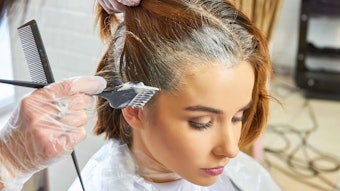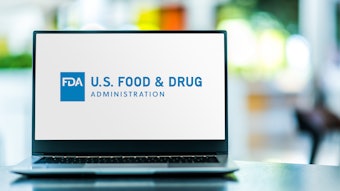Global public health organization NSF International has launched the NSF Cosmetics and Personal Care Program in response to growing concerns from consumers and retailers regarding adulteration, mislabeling and counterfeiting issues. The new program provides auditing, training, product testing, claim substantiation and certification services developed by NSF to enable manufacturers to improve the quality and safety of their products and retailers to strengthen the oversight of their cosmetic and personal care suppliers.
The NSF Cosmetics and Personal Care Program addresses the needs raised by new legislation, retailer-prohibited chemical lists and manufacturing-related quality issues which have driven rapid changes to the $300 billion global cosmetics market.
Consumer safety concerns also have fueled this need. A recent independent study conducted on behalf of NSF found that 48% of consumers are concerned about the quality and safety of personal care products. To help address these concerns, NSF International developed the NSF Cosmetics and Personal Care Program, which includes:
- Good Manufacturing Practice (GMP) Auditing: This program meets the growing demand for third-party verified compliance to cosmetic manufacturing GMP quality standard ISO 22716, which is recognized worldwide and mandated by European regulations. It also encompasses U.S. Food and Drug Administration (FDA) guidance criteria for cosmetic production, laboratory controls and customer complaint handling, which is essential for cosmetics imported into the United States. Manufacturers earn a graded audit that retailers use to qualify and set standards for their suppliers, and that serves as a baseline for continual improvement.
- Bundled Audits for Food, Personal Care and Dietary Supplements: Many facilities produce ingredients for multiple product categories spanning food, cosmetics and dietary supplements, each of which has its own set of specific quality and safety guidelines. NSF perform audits to multiple schemes and labeling requirements including dietary supplement GMPs, food safety schemes benchmarked under the Global Food Safety Initiative, ISO 9001 and ISO 14001 in addition to cosmetic GMPs. This eliminates audit redundancy and disruption to production operations while reducing costs.
- Testing: This includes testing to verify label claims including “free-from” substances like bisphenol A (BPA), PABA (p-Aminobenzoic acid), sulfates, parabens and many others. NSF also screens cosmetics for contaminants to verify their safety and quality. This is in addition to substantiating compliance to regulations in Europe and the United States (e.g. Proposition 65). Label reviews and physical, chemical and performance characteristic comparisons against national brands are also available for retailers that have concerns regarding their private label cosmetics and personal care product lines.
- Product Certification: NSF certifies cosmetics to widely accepted programs, including the EPA’s Design for the Environment (DfE) program, which verifies that cosmetic products and ingredients do not contain chemicals of concern such as known carcinogens or reproductive and developmental toxicants. NSF International also certifies cosmetics to either the USDA National Organic Program (NOP) or the American National Standard for personal care products containing organic ingredients (NSF/ANSI 305) via NSF’s sister company QAI. These programs are important to safety-minded consumers in particular as a recent independent study conducted on behalf of NSF found that 44% of consumers prefer products that are independently tested and certified.
- Training and Consulting: NSF provides GMP training for professionals who are involved in manufacturing and distributing cosmetic and personal care products so they can stay apprised of the changing regulatory landscape and best practices in supply chain quality. Those professionals who know how to conduct gap analyses and identify regulatory noncompliances before they become an issue will add value to the manufacturing process, and also help minimize safety and quality risks. NSF can also provide expert consulting to evaluate a cosmetic manufacturing quality and safety system, help facilities resolve complex quality problems or guide companies through the proper procedures for responding to FDA warning letters.
“The cosmetics industry is becoming increasingly scrutinized as consumers seek safer products and retailers step up to meet this demand,” said Casey Coy, manager of NSF International’s Cosmetics and Personal Care Program. “With this new program, NSF International has applied 70 years of technical and scientific expertise to develop specialized auditing, testing and certification programs that support retailers in improving their supply chain oversight and cosmetic safety. This program also helps manufacturers demonstrate compliance to retailer requirements and U.S. and European regulations.”






!['I think the biggest game-changer about [MoCRA's] ... requirement for GMPs is how it changes what it means to be adulterated,' Brandi Reinbold, senior manager of global certification for NSF International, said in this sponsored videocast. Register now to watch and learn more. It's free.](https://img.cosmeticsandtoiletries.com/files/base/allured/all/image/2023/11/NSF_Intl_Thumbnail.6554efdc29816.png?auto=format%2Ccompress&fit=crop&h=191&q=70&rect=275%2C70%2C1328%2C748&w=340)



